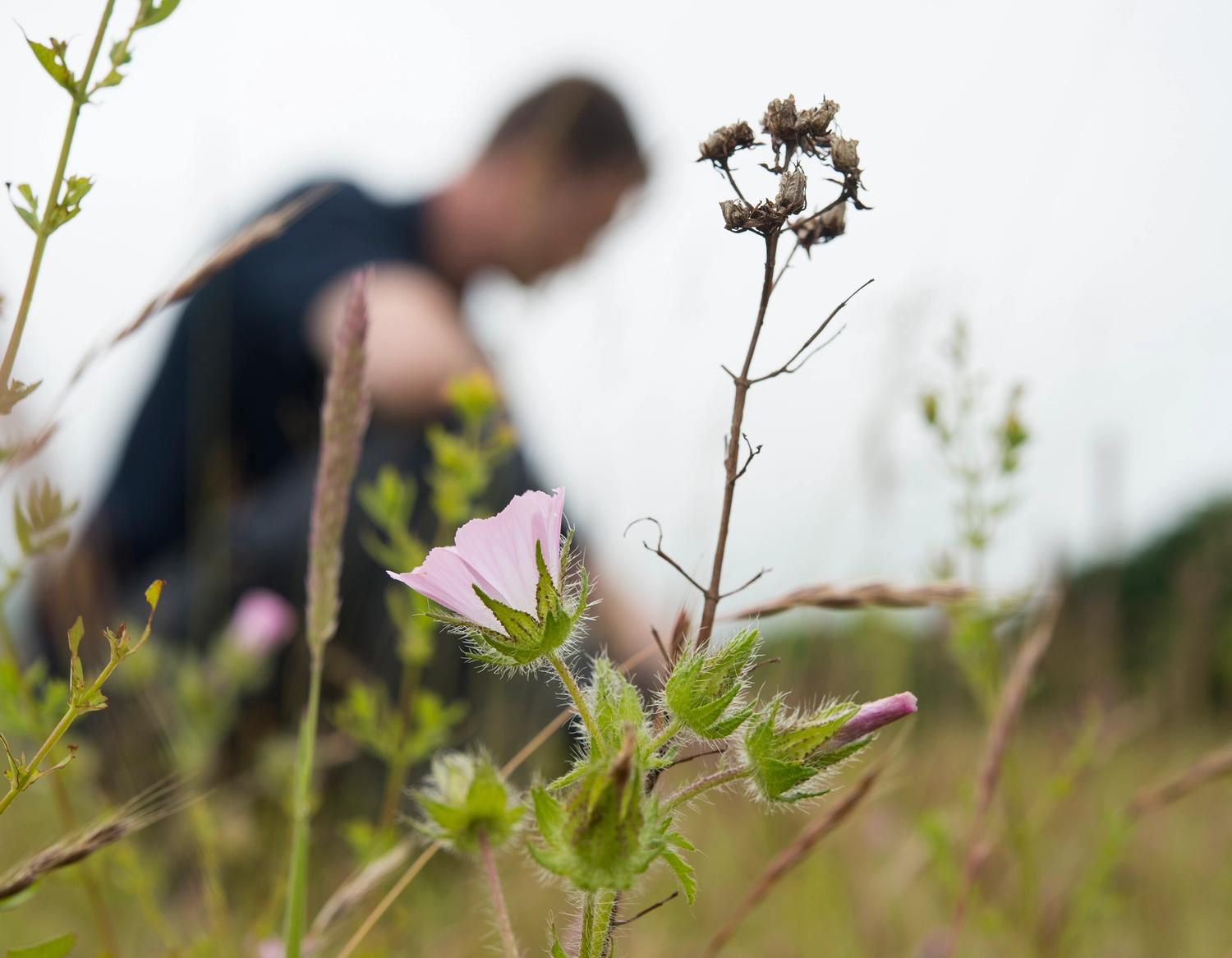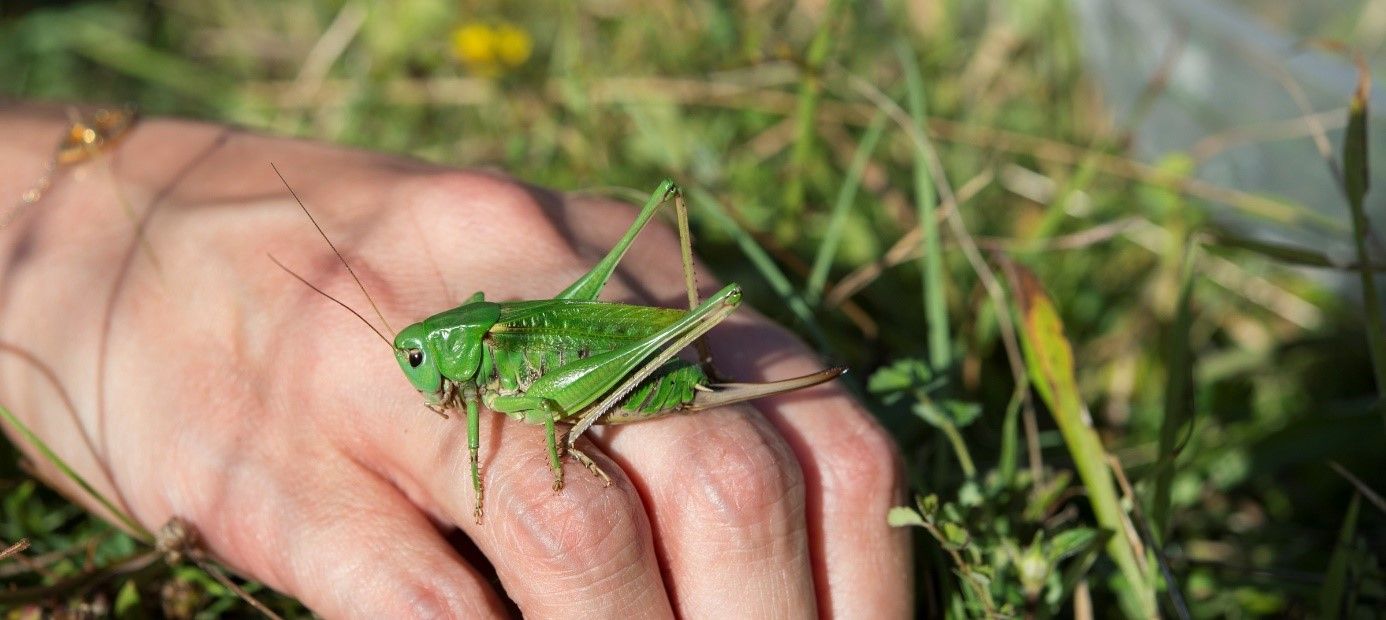Did you know that much of the water we use in our homes is taken from rivers and lakes that wildlife in the UK rely on to survive? We’re encouraging everyone to take care of our most precious resource to ensure there’s enough for everyone – humans and wildlife alike.
We spoke to Biodiversity Manager, Richard Dyer about his role in looking after our environment and how his team is carrying on during the COVID-19 outbreak.

If we all use water wisely we can help protect our natural water sources. More than half of the species that depend on UK rivers, lakes and wetlands are in decline. However, if we can all work together to save water we can help our environment thrive and make sure there’s enough for all living creatures.
Can you tell us about your role at South East Water?
My job title is Biodiversity Manager and I’m responsible for the management of our company owned Sites of Special Scientific Interest (SSSI). These sites are of particular interest to science due to the rare species they contain – or they have important geological or physiological features. We have 33 areas classed as SSSI across our region which come in all shapes and sizes. It’s my job to make sure we have management plans for all of them to so we can constantly improve their condition. I also manage the nature reserve at our Arlington Reservoir, along with the trout fishery.
All of our sites are fairly unique and so require different plans. We have some really interesting ones where some really unusual species can be found – including the rare Hairy Mallow growing on the roof of a covered reservoir to and one of the rarest insects in the country, the wart-biter cricket.
My main focus at the moment is to make sure we’re meeting our performance commitment to measure our levels of biodiversity across our sites, as well as putting in place ways to improve it. This means helping a variety of plant and animal life thrive in different habitats across our supply area. It’s a big job as over the next five years we need to increase the area we currently manage for biodiversity from 1,166 hectares to 1,460 hectares
Did you know that much of the water we use in our homes is taken from rivers and lakes that wildlife in the UK rely on to survive? We’re encouraging everyone to take care of our most precious resource to ensure there’s enough for everyone – humans and wildlife alike.
We spoke to Biodiversity Manager, Richard Dyer about his role in looking after our environment and how his team is carrying on during the COVID-19 outbreak.
If we all use water wisely we can help protect our natural water sources. More than half of the species that depend on UK rivers, lakes and wetlands are in decline. However, if we can all work together to save water we can help our environment thrive and make sure there’s enough for all living creatures.
Can you tell us about your role at South East Water?
My job title is Biodiversity Manager and I’m responsible for the management of our company owned Sites of Special Scientific Interest (SSSI). These sites are of particular interest to science due to the rare species they contain – or they have important geological or physiological features. We have 33 areas classed as SSSI across our region which come in all shapes and sizes. It’s my job to make sure we have management plans for all of them to so we can constantly improve their condition. I also manage the nature reserve at our Arlington Reservoir, along with the trout fishery.
All of our sites are fairly unique and so require different plans. We have some really interesting ones where some really unusual species can be found – including the rare Hairy Mallow growing on the roof of a covered reservoir to and one of the rarest insects in the country, the wart-biter cricket.
My main focus at the moment is to make sure we’re meeting our performance commitment to measure our levels of biodiversity across our sites, as well as putting in place ways to improve it. This means helping a variety of plant and animal life thrive in different habitats across our supply area. It’s a big job as over the next five years we need to increase the area we currently manage for biodiversity from 1,166 hectares to 1,460 hectares
The rare Hairy Mallow found at our Folkington Reservoir

How long have you worked at the company?
I’ve been with South East Water for 23 years now. I joined as a Fishing Ranger at our Barcombe Reservoir, before becoming a Fishery and Conservation Ranger shortly after. Before joining the company I worked for the National Trust as a warden on the South Downs and also volunteered for Hastings Country Park.
How does saving water impact on our environment and wildlife?
If we all use water wisely we can help protect our natural water sources. More than half of the species that depend on UK Rivers, lakes and wetlands are in decline. However, if we can all work together to save water we can help our environment thrive and make sure there’s enough for all living creatures.
How has your role changed due to the COVID-19 outbreak?
Before we went into lockdown ours sites such as Arlington and Ardingly were busy with walkers and fishermen enjoying the onset of spring. However, during the early days of the COVID-19 outbreak and following Government guidance things changed dramatically and we worked hard getting restrictions in on our public places to ensure everyone’s safety. We’re now looking at how we can instigate a phased reopening of some of our public car parks and nature reserves safely following new government guidelines. We’ve also had to stop our volunteer work, but luckily our Environmental Performance Officers have been able to continue doing important surveys, and collecting vital data with social distancing measures in place.
One change I’ve noticed is that wildlife seems to be thriving while we’ve all been in lockdown. Birds seem louder as there isn’t as much background noise from planes and cars. I’ve also seen wildlife out and about much earlier in the evening than normal such as foxes and badgers as it’s been so quiet with few cars and people about. . I think the air quality has improved too and the smell of the recent spring blossom has been amazing.
What’s your favourite thing about your job?
I’m lucky to be part of a fantastic team and everyone is great to work with. We get to see some pretty amazing things and come into contact with wildlife that the average person wouldn’t normally see, or hold in their hand. I also love to see the progression of the sites we manage. For example, when I joined the company our Deep Dean site in the South Downs was in poor condition. Now it’s much better and we’ve managed to introduce the incredibly rare Wart-Biter Cricket back to the site, which is amazing.

I’m lucky to be part of a fantastic team and everyone is great to work with. We get to see some pretty amazing things and come into contact with wildlife that the average person wouldn’t normally see, or hold in their hand.
Share this Article: